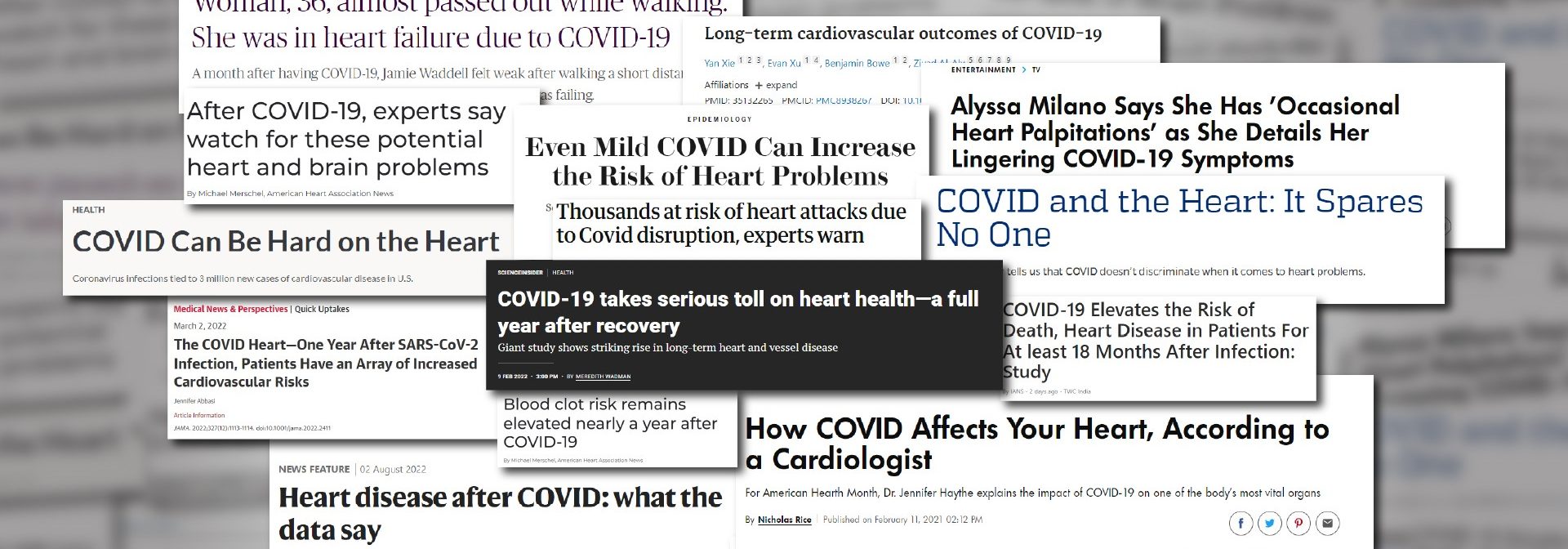
You’ve seen it all in the headlines – COVID increases the risk of heart disease. It’s alarming and true! Continued research proves that anyone infected with COVID is at a higher risk of heart-related conditions, even young, healthy people who weren’t hospitalized.
“Studies have found that COVID doesn’t really discriminate based on how we classically split up risk factors such as age, medical history, comorbidities, race and gender,” says Dr. Peyton Card, who serves as an internal medicine physician and COVID specialist here at Arkansas Heart Hospital. He finds the research findings alarming. “Across the board, everyone is at an increased risk of heart disease.”
After several years battling COVID-19, you know the classic symptoms: cough, loss of smell and taste, and shortness of breath. However, a growing body of research shows that coronavirus is associated with wide range of lasting problems such as myocarditis (inflammation of the heart muscle), cardiovascular disease, stroke and heart failure.
People who have experienced COVID are 70% more likely to experience heart failure, and there are more than 37,000 more people suffering with heart related conditions post-COVID who would not have had these without contracting COVID.
“Across the board, you are more likely to have cardiovascular disorders if you had coronavirus,” says Dr. Gary Nash, Arkansas Heart Hospital cardiologist. “The risk follows you for at least an entire year. From young, healthy people or older sick people, you’re at an increased risk.”
People will contract many types of coronaviruses during this lifetime – such as the common cold – but COVID-19 is unique because it affects more than the upper respiratory tract.
“It can affect almost any organ system, including the brain, heart, lung, gut or pancreas,” Nash says. “We see not only cardiovascular issues, but we also see an increase in diabetes, brain fog after a coronavirus infection.”
Individuals should watch for certain red flags that will signal that they should see a doctor. These include lingering symptoms such as:
- Continued coughing
- Difficulty breathing
- Difficulty exercising
- Heart palpations
- Chest pains
- Joint pain
- Memory or concentration problems
- Sleeping problems
- Muscle pain or headache
- Loss of smell or taste
- Swelling in the legs
- Depression or anxiety
- Dizziness when you stand
These lingering symptoms can turn into a condition called long-COVID or post-COVID. If this is the case, rehab, like our Post-COVID Pulmonary Rehab Program, may be the best course of action.
This comprehensive outpatient treatment, offered through Strong Hearts Rehabilitation Center, focuses on restoring patients’ quality of life, says program director, Amanda Xaysuda.
“Most patients we see come in with shortness of breath, fatigue, headaches, lingering cough, exercise intolerance, exertional malaise,” Xaysuda says. “The purpose of the pulmonary rehab program is to address these symptoms. The purpose is to not cure disease or resolve any heart or lung disease in these patients but be able to tolerate exercise better and improve their quality of life.”
Determine YOUR risk and take action today by talking with one of our cardiologists or your primary care physician, or having our Keep the Beat comprehensive heart screening.